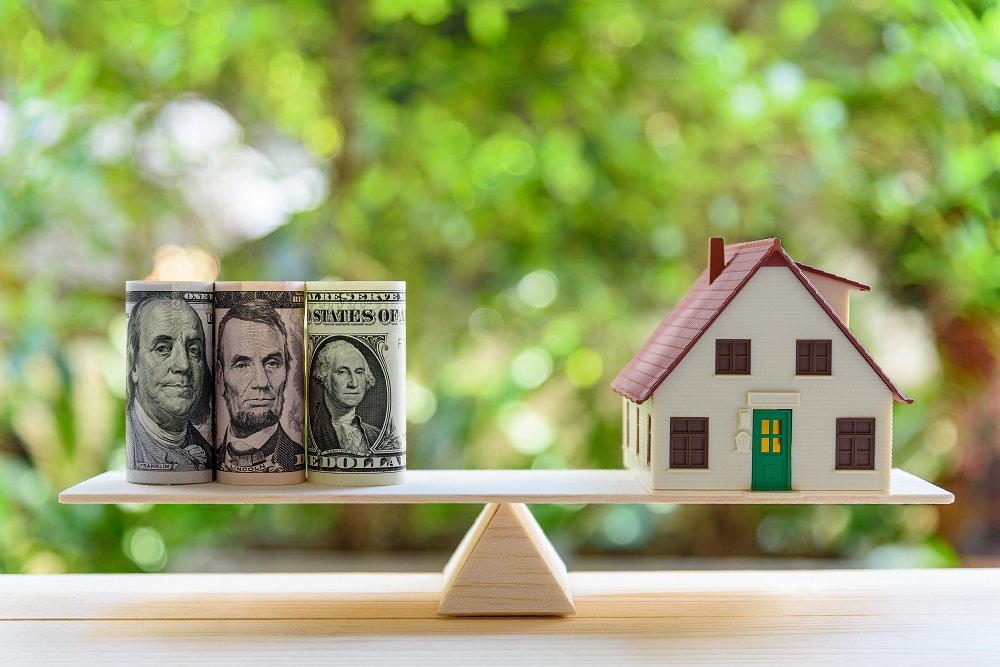How to Pay off your Home Quicker

Table of Contents
For most people, buying a home is the largest and most important single financial decision they will ever make. Again, for most people, the aid of mortgage is what makes buying a home even possible. It is the way most people become their own landlord… but paying it off can take a lifetime!
Is there any way to pay a mortgage off quicker? Are there any tools and tips to reduce the amount of interest paid?
The truth is there are some easy tips and tricks to pay off your home quicker.
In this article I will cover all the legitimate reasons. One thing to keep in mind is that each method will be taking advantage of the borrower being persistent over a period. There are no shortcuts or free lunches in life, but with a steady hand you can find yourself out of the firm grasp of mortgage debt much sooner than 30 years.
Refinance your Mortgage
Refinancing your mortgage can be a great way to save money on the amount of interest you pay each month. Refinancing usually implies that you can qualify for a new mortgage loan with better terms. The metric most used to measure the value of a refinance is the interest rate or better yet the APR.

The mortgage APR is a combination of the interest rate charged and fees.
Over the last several decades, the average mortgage APR has continuously gone down. This means that if you purchased a home several years ago, the rates available today are likely lower… thus, effectively cheaper for the borrower.
Keep in mind that the rate that you qualify for depends highly on the type of loan and your personal credit history, so everyone’s situation is different.
Refinancing a mortgage is not free, however, and you should expect to pay between 2% and 5% of the loan amount in costs associated with the refinance. These costs are not included in the APR. If you are refinancing a loan balance of $300,000 then you are looking at paying anywhere from $6,000 to $15,000 in fees. This is no small surcharge.
Although the fees can be steep, lets consider an example of refinancing a $300,000 loan from 4.5% to 3.5%. At 4.5%, the monthly payment would be $1,520. At 3.5% it would be $1,347. A drop of $173! If you paid $10,000 in fees to refinance, it would take 58 months to break even on fees and interest.
If you planned on living in the home past the breakeven point, the refinance in this case could make sense. Otherwise, you would likely pay more in fees than you would save on interest.
One thing that should be noted is that in the example above, as in many refinancing situations, the loan period resets to 30 years. This is not mandatory. You can request loans that match the length of time you have left on your current loan. For the example provided above… I kept the loan period and refinanced period to 30 years each to given an apples / apples comparison.
Additionally, refinancing to a shorter loan period, say 15 years, often results in an even lower APR. Thus, keeping the loan period down to the shortest period possible can make the burden of interest even lower.
Make an Extra Payment Each Year

Making an extra payment towards your mortgage each year can have an outsized effect on your repayment timeline. The easiest way to do this is to take 1/12th your monthly payment and pay that amount additional each month.
For example, on a $300,000 30-year mortgage at 4.5% interest we already know the monthly payment is $1,520. If instead you pay an additional $127 each month for a grand total of $1,647 you will end up making the equivalent of 13 monthly payments every 12 months.
By doing this you will reduce your mortgage length by 4 years and 5 months. Your 30-year mortgage is now just a tad longer than 25 years.
There are a few important notes to keep in mind when choosing to make an extra payment:
- Make sure there are no fees or penalties for paying your loan down early.
- Make sure your loan servicer doesn’t require additional payments to occur at a specific time of year.
- Ensure that the additional money you are paying each month goes towards the principal… not towards your following month’s payment.
Make Bi-Weekly Payments
Some mortgage companies offer what is called ‘bi-weekly’ payments. This means you will be paying every other week. Since there are 52 weeks in a year, this would mean that you would be paying 26 times per year instead of 12 times for each month.
Now if your original monthly payment was $1,000, but instead your bi-weekly schedule calls for $500 to be paid every other week you will end up paying $13,000 a year towards your mortgage (as opposed to $12,000 for monthly payments). That’s an additional $1,000 paid which just so happens to be the same as 1 full month’s payment.
Just like the previous method of paying an extra payment each year, the bi-weekly payment method results in almost the same thing: a little over a 4-year reduction in loan repayment.
You will want to make sure, however, that your bi-weekly payment is at least half of what the monthly payment would have been. If the bi-weekly payment is less than half, then you will likely not be paying the additional amount you thought you were… or at least what is demonstrated in the example.
Recast your Mortgage Loan
 Recasting your mortgage is an interesting way to lower your monthly payment by putting a large lump sum towards the balance. After the lump sum is applied to the balance, the mortgage company recalculates the amortization resulting in a lower monthly payment while keeping the loan term the same.
Recasting your mortgage is an interesting way to lower your monthly payment by putting a large lump sum towards the balance. After the lump sum is applied to the balance, the mortgage company recalculates the amortization resulting in a lower monthly payment while keeping the loan term the same.
Technically, recasting your mortgage does not shorten your repayment term, however, it does lower your payment giving you flexibility on how you choose to pay back the overall loan balance.
Typically, the type of person who recasts their loan is someone who purchased a home prior to selling their older home. Once they get the balance of their previous home, they apply it to the home they just bought.
The big advantage of recasting is that the fees are very low… especially when compared to refinancing.
Downsize
Although downsizing may not be a popular option, it is the one that my family and I chose to shorten our own housing debt obligations. Downsizing should be given considerable thought if you are determined to be out of housing debt any time soon.
Let me put it this way: if you downsize to a home that is 20% less expensive, you will pay 20% less compounded over 30 years! That’s an incredible amount of money.
If the home you downsize to is also smaller in size, then it will be cheaper to heat, cool, fill with furniture, maintain, and even likely insure.
The cost reduction when buying a cheaper and smaller home can have life changing effects on your finances. Living modestly could mean living freer, sooner.
Offers that Seem too Good
Just prior to writing this article I had my shredder whirling. After going through my mail for the day I had several unsolicited offers about getting cash back for my home, refinancing, and reducing my interest rate through other creative methods.
There are an innumerable number of people that would love to take your home, your money or even just your personal information. If the offer seems too good to be true… it is!
If its too confusing to understand… it is!
A good rule of thumb to abide by when it comes to trusting financial products is only engaging in companies that you contact. Don’t reply or engage with any company offer that sought you out.
Do your research on reputable mortgage companies and reach out to them. That way you know that the institution you are contacting is legitimate and not trying to scam you.
Summary
Paying down your home quicker is relatively simple. You can either find a way to lower your interest rate or simply pay more than is obligated at varying time frames. The trick is being consistent once you have determined a plan.
If you decide to pay a little bit extra each month, then automate that decision. Make it so it’s difficult to undo the decision. If you must manually pay a little bit each month you are putting yourself in the position of having to reconfirm old decisions every time you have to act.
However, you decide to pay your home down, I hope you enjoyed this article! To be honest, I don’t recommend paying off your mortgage early… I even wrote an article called ‘6 Reasons Not to Pay Off Your Mortgage Early,’ to explain why.
Get Professional Advice
After reading this article, I want you to remember one thing: I write this blog as an expression of my opinion. You should seek professional advice when doing anything that may jeopardize your finances. Your home is probably one of your largest, if not THE largest, asset you have.
Do your research.
Shop around when looking for financial products. Haven an accountant or financial advisor look over your plan and crunch the numbers behind your decisions. Make sure that whatever you have decided to do makes sense to someone else with the background to know better.
Guy Money
As a formally trained Data Scientist I find excitement in writing about Personal Finance and how to view it through a lens filtered by data. I am excited about helping others build financial moats while at the same time helping to make the world a more livable and friendly place.



